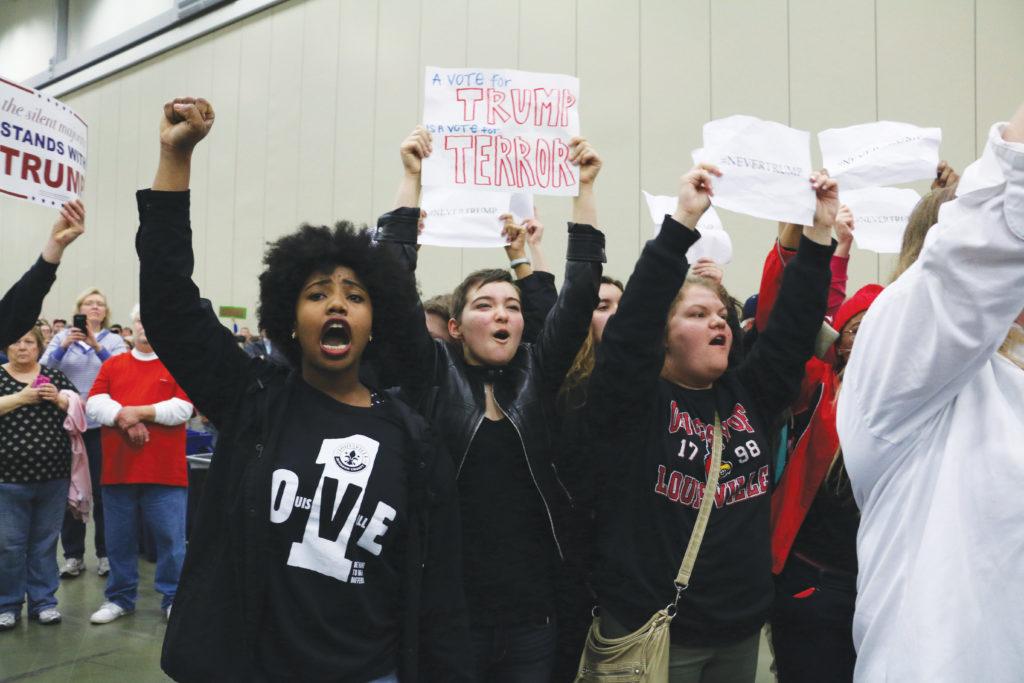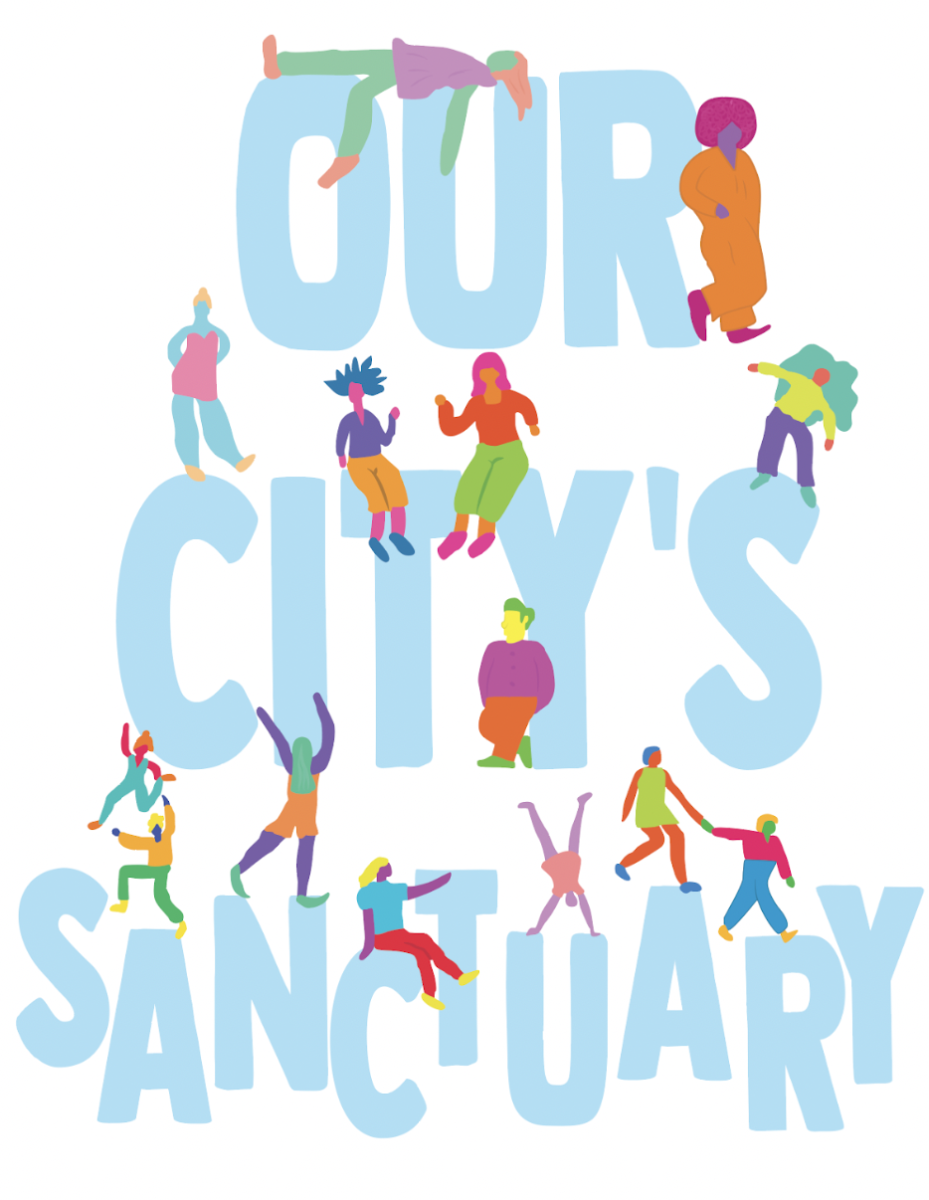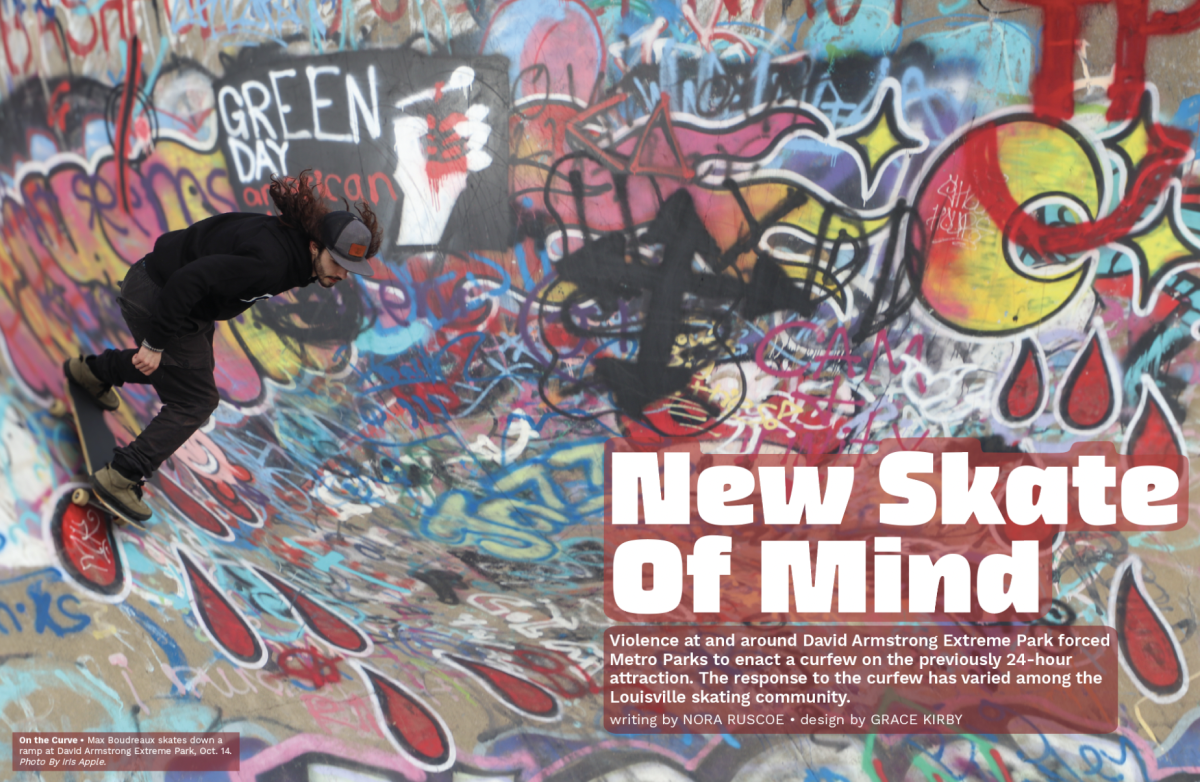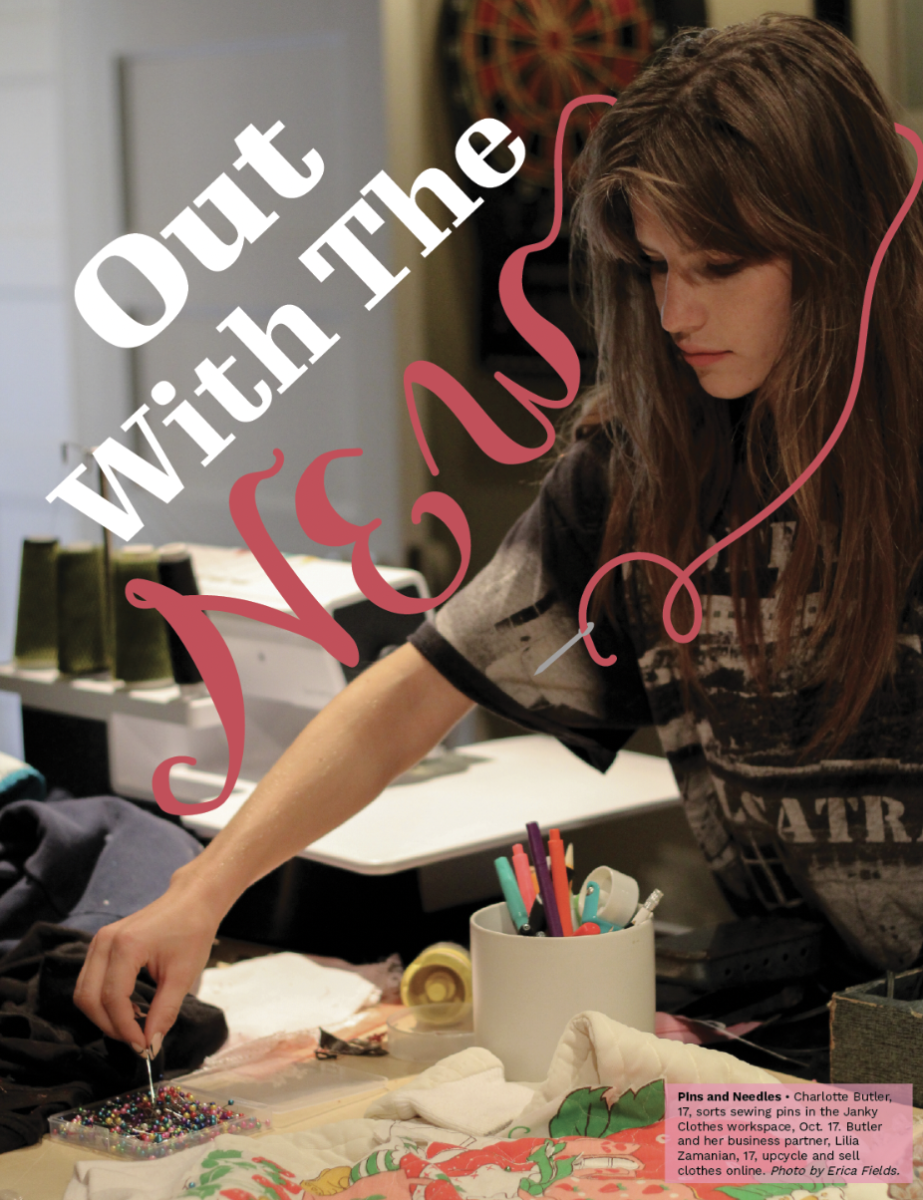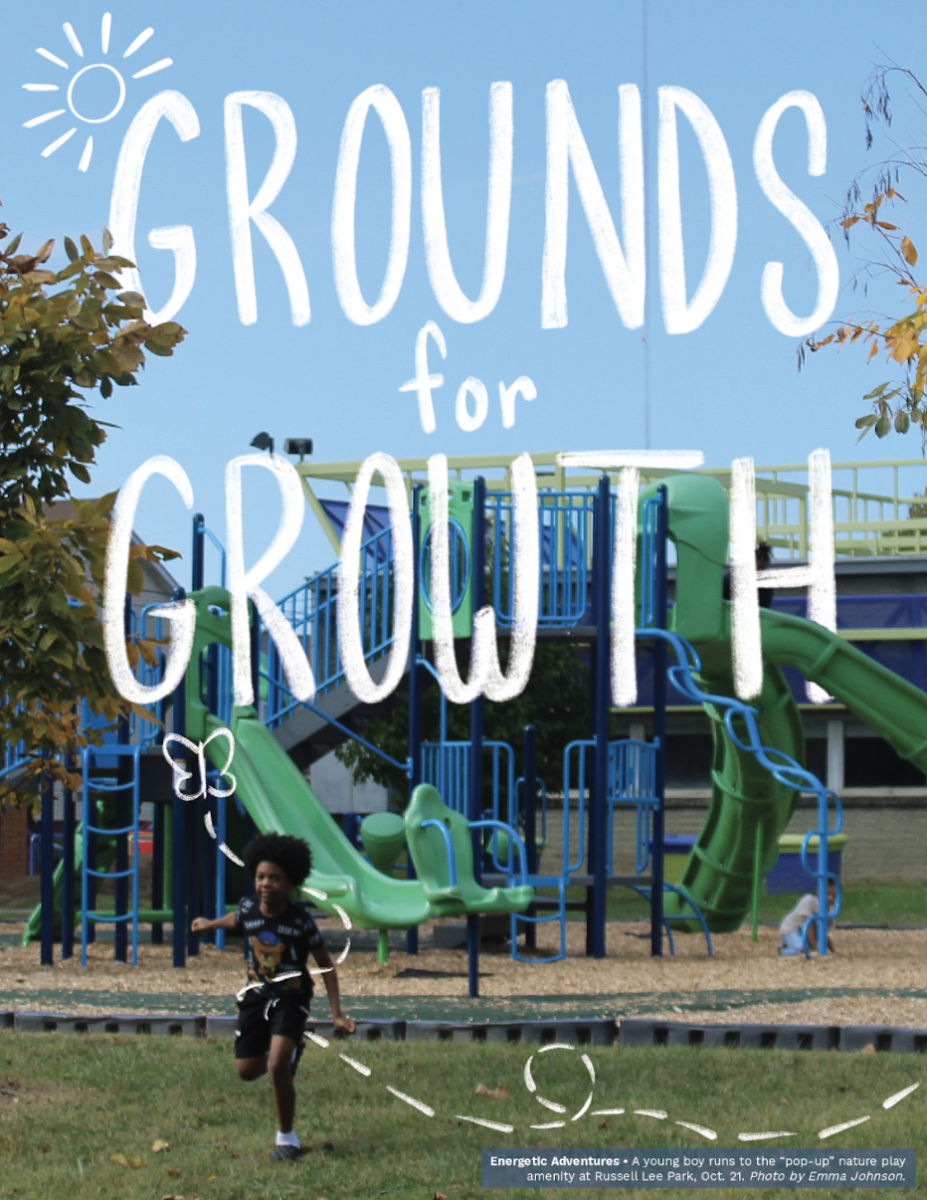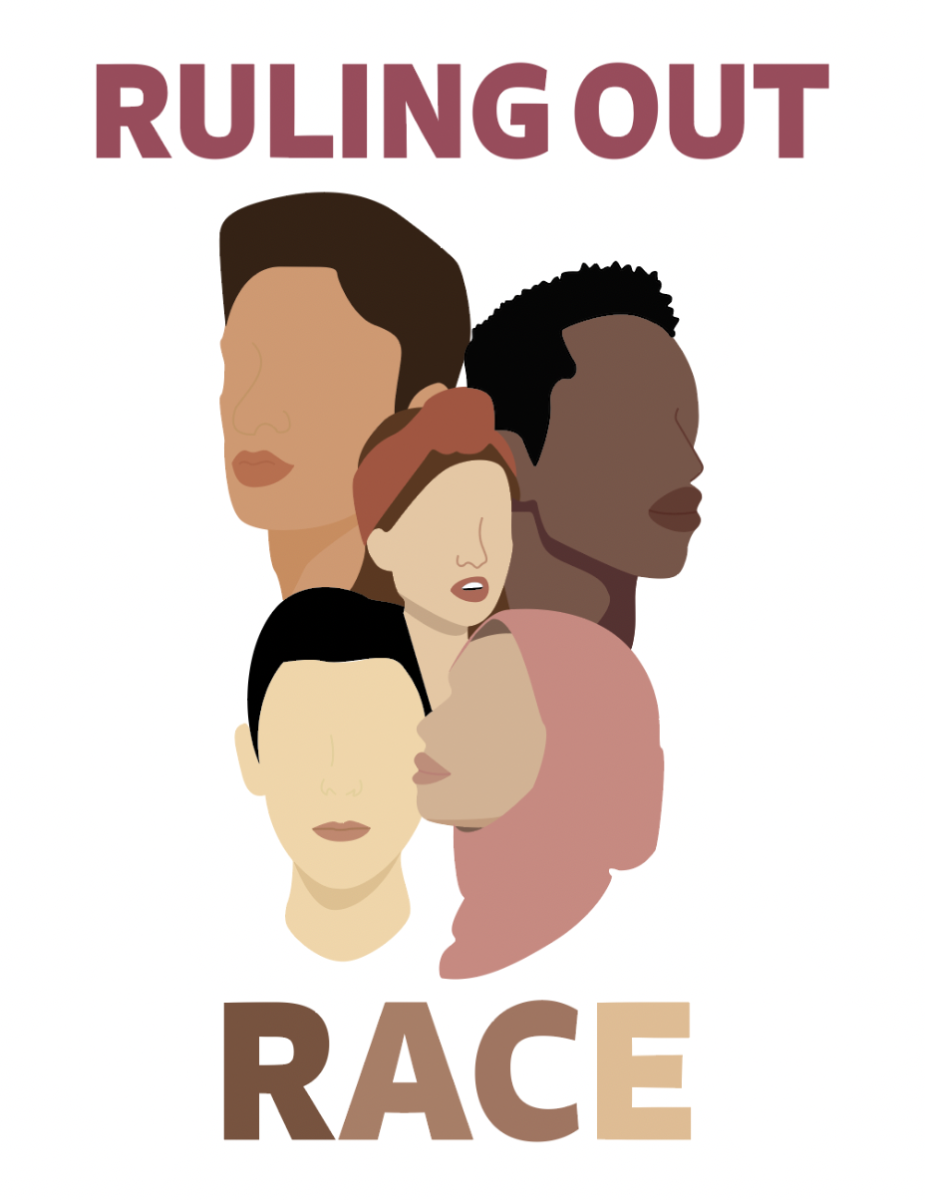March 1, 2016. 5:00 p.m.
The police stood at attention, their hands clasped tightly behind their backs, their feet planted firmly on the concrete.
They stood silently, watching. Behind them, Trump supporters yelled without restraint and hoisted signs in the air.
“Build that wall! Build that wall!”
In front of the police, a line of protestors chanted their response:
“Love trumps hate! Love trumps hate!”
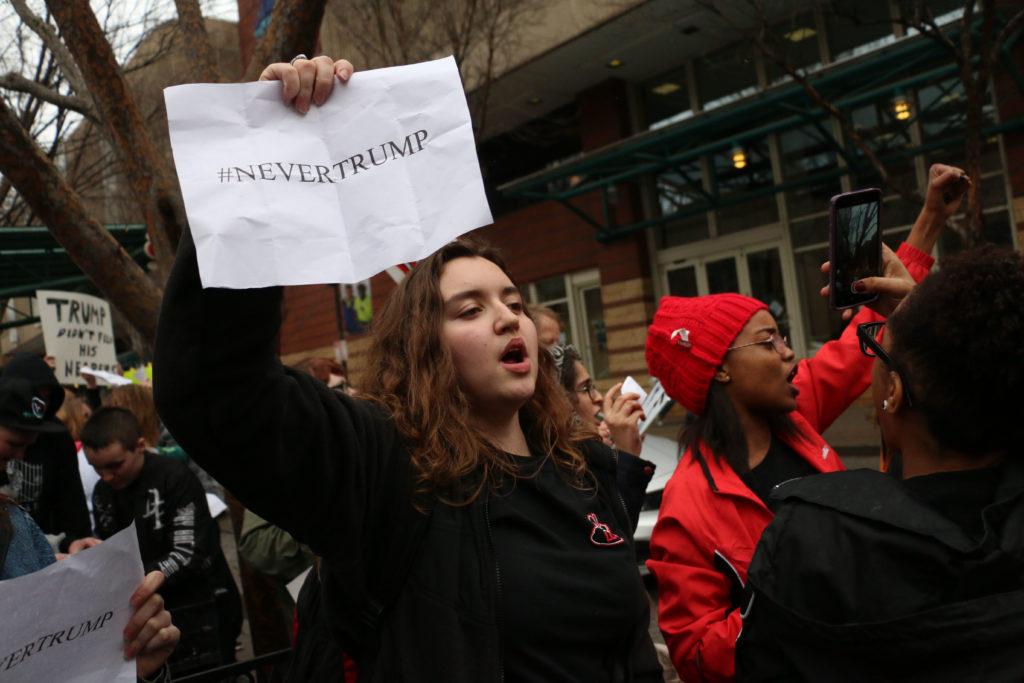
The shouting became more indignant with each round, signs going higher and higher as the officers looked on.
Atherton High School senior Marta Martin stood in the line of protesters, facing the antagonizing jeers of the Trump fans who shouted through the wall of police.
“We did not move, we just chanted and held our signs,” Martin said. “While the Trump supporters threw things and screamed obscenities at us, we held our ground.”
Martin was one of many students who protested at the Kentucky International Convention Center where Trump, now the Republican nominee for president, held a Super Tuesday rally. By taking action, Martin defied the stereotype of millennials as lazy, narcissistic and delusional — an allegation seemingly legitimized by a Time Magazine cover story in 2013. Like many Louisville youth, Martin was driven by a desire for change.
When some Louisville high school students heard the news that Trump would be holding an event in their city, they jumped to action. duPont Manual High School seniors Huda Jabbar, Jahné Brown, and Sarah Olive started a Facebook page titled “Louisville Youth Against Trump” to plan for a protest at Trump’s rally and, according to the page’s description, promote “peace and cultural understanding in the face of hatred, bigotry, and violence.”
Within only a few short weeks, the group had over
350 members.
“So many people were ready to join our movement. I felt as though if we could incite a change of attitude for one Trump supporter — after seeing a group of young people so passionate for a cause — it would be enough,” Jabbar said.
Brown, along with co-organizing the Trump rally, has been involved in a multitude of other protests and rallies. Last year, she planned a vigil for victims of police brutality with her school’s Black Student Union, in addition to working alongside young women in Louisville on the topics of intersectional feminism and reproductive justice. Brown was drawn to activism when she began to realize the dangerous effects of a politician’s speech and actions.
“Hate speech doesn’t just hurt feelings, it actually helps create and support a dangerous, violent America for marginalized people to live in,” Brown said.
“I’ve decided that I will not idly allow Donald Trump, Ted Cruz, or anyone else, to target the people that I love. There’s no such thing as being neutral.”
Social media gave women such as Jahné Brown a platform to organize and unite spirited young citizens for a purpose that they passionately believe in — a feat that demonstrated just how much power this generation holds in its hands. With tools such as Twitter and Facebook, young people are able to instantly inform others about a cause while organizing an event. This ability is one that previous generations of youth activists did not have and one that has completely redefined activism.
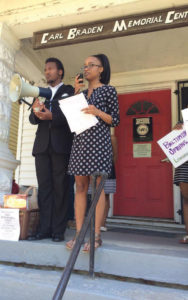
Lisa Gunterman, Assistant Director of the LGBT Center at the University of Louisville, has been heavily involved in the Louisville activism scene since she was a teenager, before social media even existed.
“We actually had to pick up the phone and call people and make flyers,” Gunterman said. “I think it’s really amazing what young people are doing with social media to organize and create safe spaces for each other.”
Lisa explained that as a young activist, she always found herself appreciating the older activists that she worked with. Rather than silencing her ideas because she was young, she said they embraced her and offered her ample opportunities to succeed as a leader.
“A lot of people brush off youth and think young people don’t have ideas,” Gunterman said, “but young people have always been on the front lines of every movement. And I really appreciate that people made room for me and gave me space to do that.”
American social justice movements have historically attracted large numbers of youth. During the beginnings of the Civil Rights Movement, Dr. Martin Luther King Jr. gave vocal support to young activists and supported their self-organizing. In 1959, he rallied students against racist law enforcement in Birmingham, Ala.
The anti-war movement prevalent in the 1960s also felt a strong youth influence. In the famous 1969 Supreme Court case, Tinker v. Des Moines Independent School District, school administrators forbade students to wear homemade black armbands in protest against the Vietnam War. When the case reached the Supreme Court, the students came out victorious, setting a precedent for free speech in public schools that continues to influence policy and legislation.
Some victors of these movements publicly throw support to youth activists today — including Mary Beth Tinker, one of the plaintiffs in the Supreme Court case, who tours the nation in support of student speech and activism.
Louisville Male High School senior Ahmaad Edmund agrees that past generations are beginning to recognize the influence of today’s youth.
“I think people have actually started to listen not only to myself, but to various other young people who are in this particular age range,” Edmund said. “They say ‘wait a second, they actually have the same ideas that we have as adults.’”
Edmund has been active in his community since 2008, when he became a youth minister at Pleasant View Baptist Church in downtown Louisville. Since then, he has worked at the mayor’s office and served on the Muhammad Ali Center’s Council of Students (MACCS), through which he has met and befriended youth throughout the city.
“These young people are amazing, bright individuals that really value each other. It’s like a friendship — more than a friendship — like a sisterhood or brotherhood kind of thing,” Edmund said.
“I don’t consider these people my friends — I consider them my brother or my sister because that is just the type of bond that social justice creates among young people.”
Today’s youth protesters are not working in vain. Photos and video from rallies continue to blow up social media — and support for youth voices continually grows.
“Your voice is important and makes a difference whether you are using it to protest, educate, write op eds, or volunteer,” Brown said. “Everyone can be an activist.”


